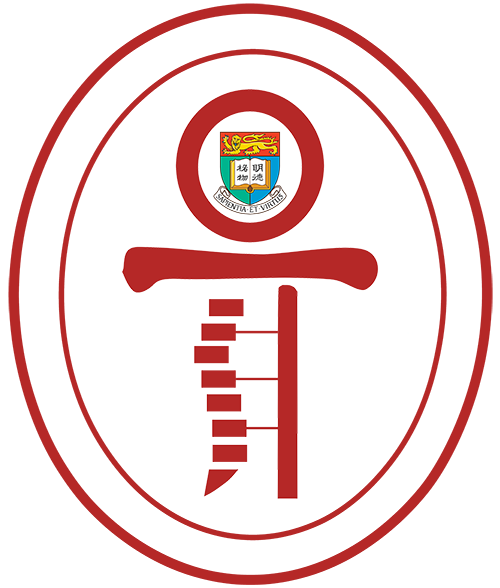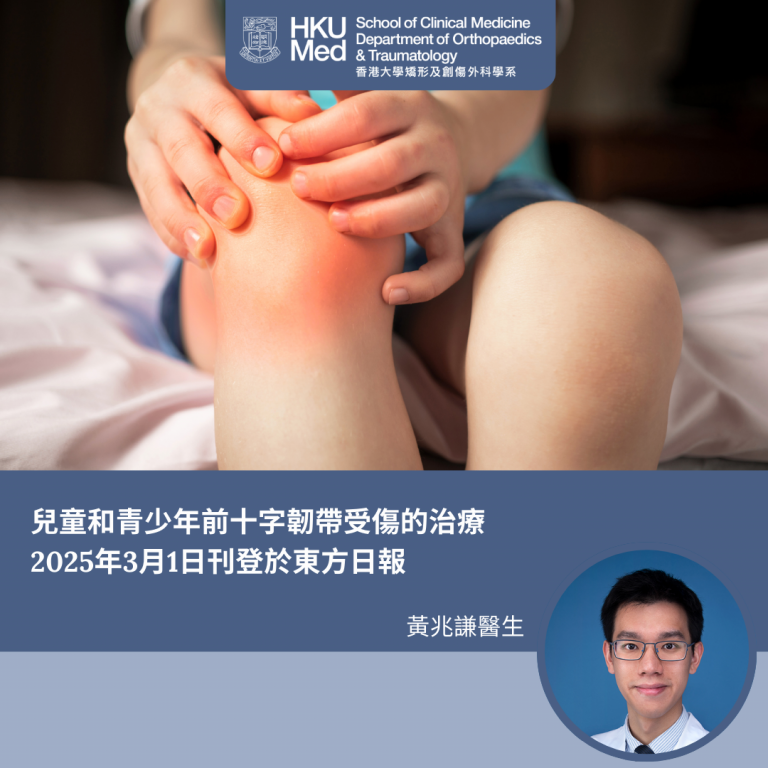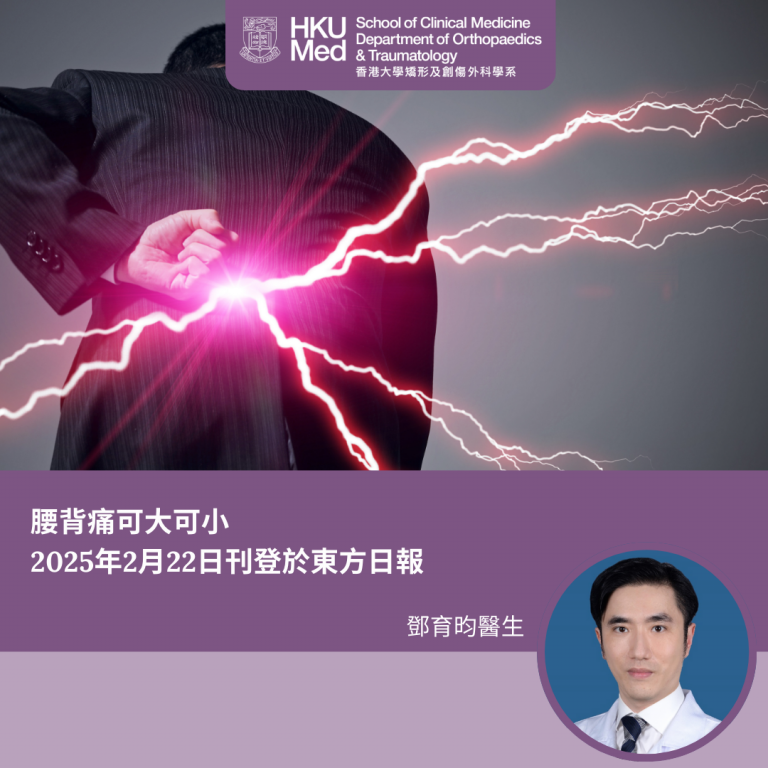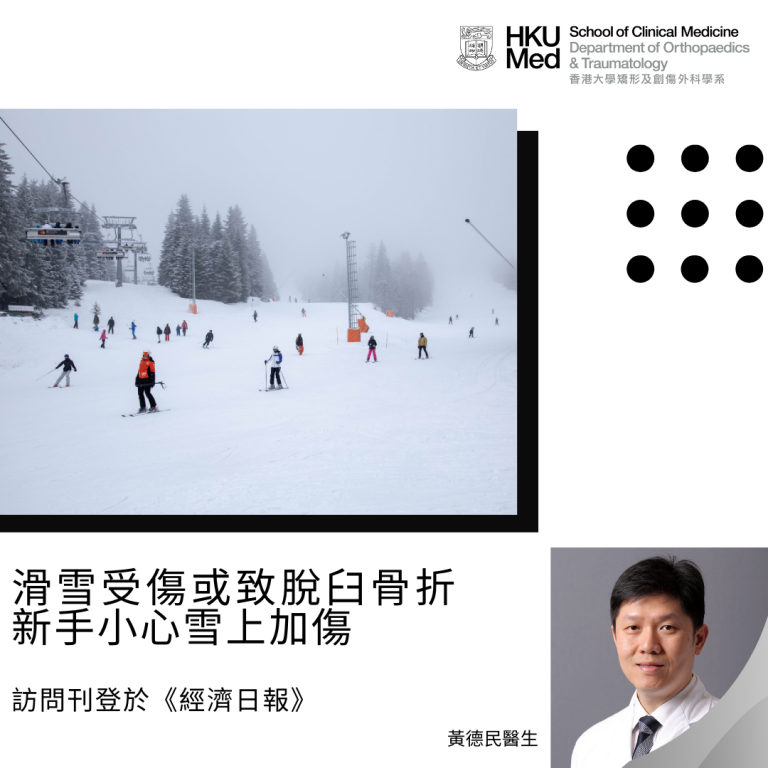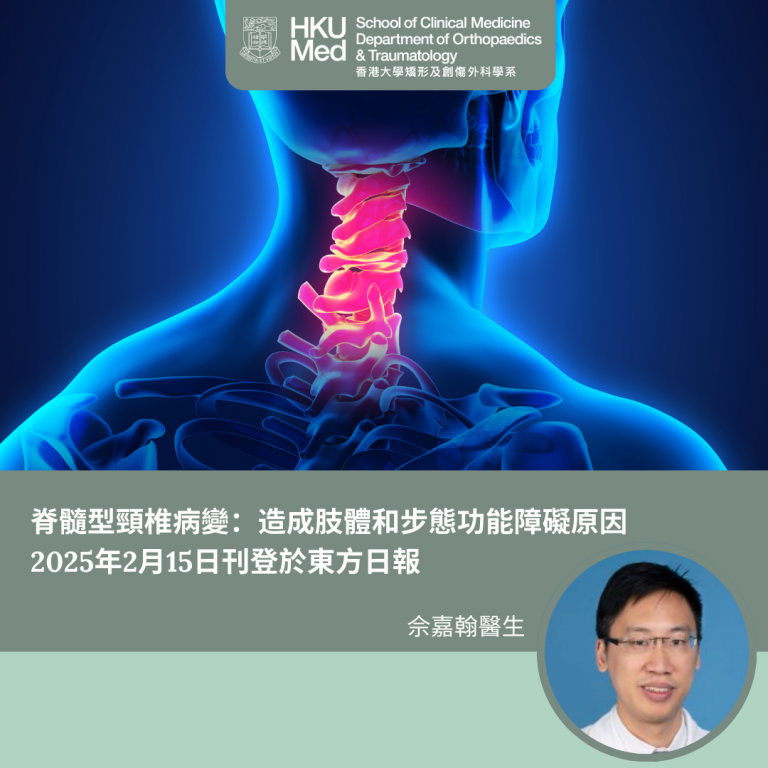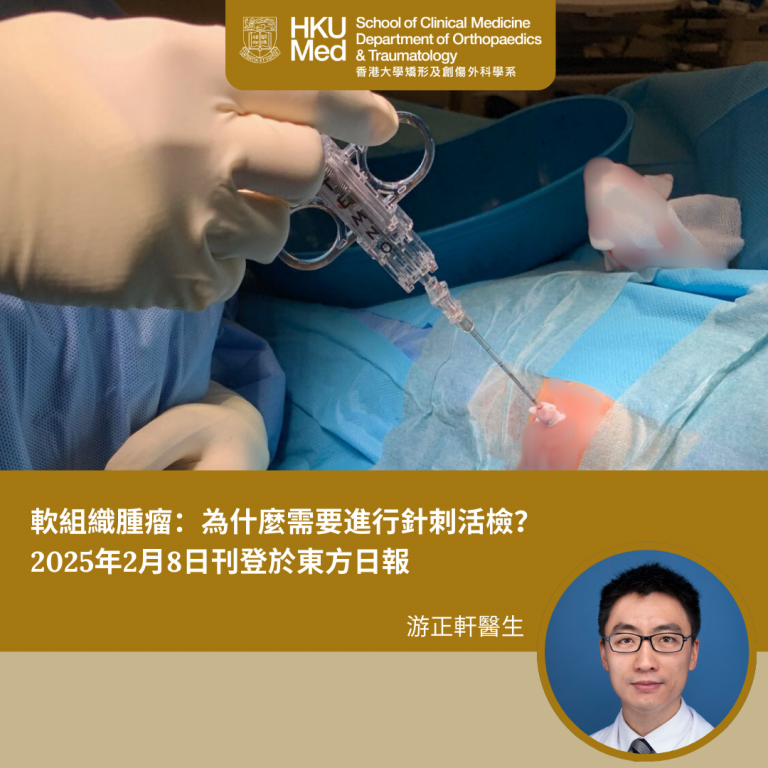Taking the Hardest Route is Often the Right Choice — 135 Years of Mentor-Mentee Relationships at HKUMed
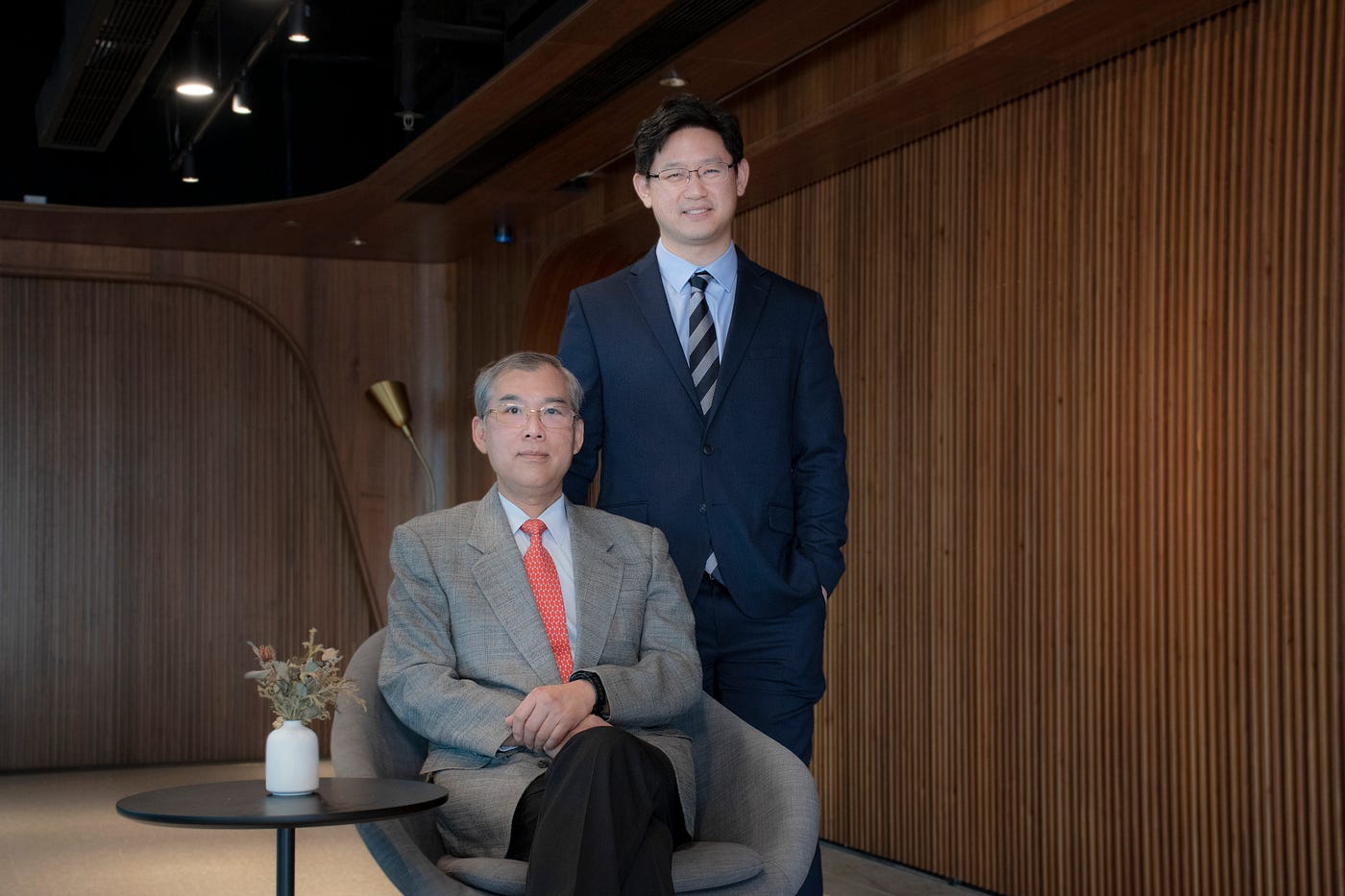 Dr Jason Cheung (right), Chairperson of the Department of Orthopaedics and Traumatology with his mentor Professor Keith Luk, Emeritus Professor and Honorary Clinical Professor
Dr Jason Cheung (right), Chairperson of the Department of Orthopaedics and Traumatology with his mentor Professor Keith Luk, Emeritus Professor and Honorary Clinical ProfessorSince HKUMed was established 135 years ago, the Faculty has trained numerous healthcare professionals. In turn, many of these graduates have taken on the role of nurturing the medics of the future.
To recognise the importance of these mentor-mentee relationships, we invited teachers to choose their respective mentors or mentees to discuss how these relationships have shaped their professional journeys.
Our second mentor-mentee pair are the current and former heads of the Department of Orthopaedics and Traumatology, Dr Jason Cheung (MBBS 2007), current Department Chairperson, and his mentor Professor Keith Luk (MBBS 1977), Emeritus Professor and Honorary Clinical Professor.
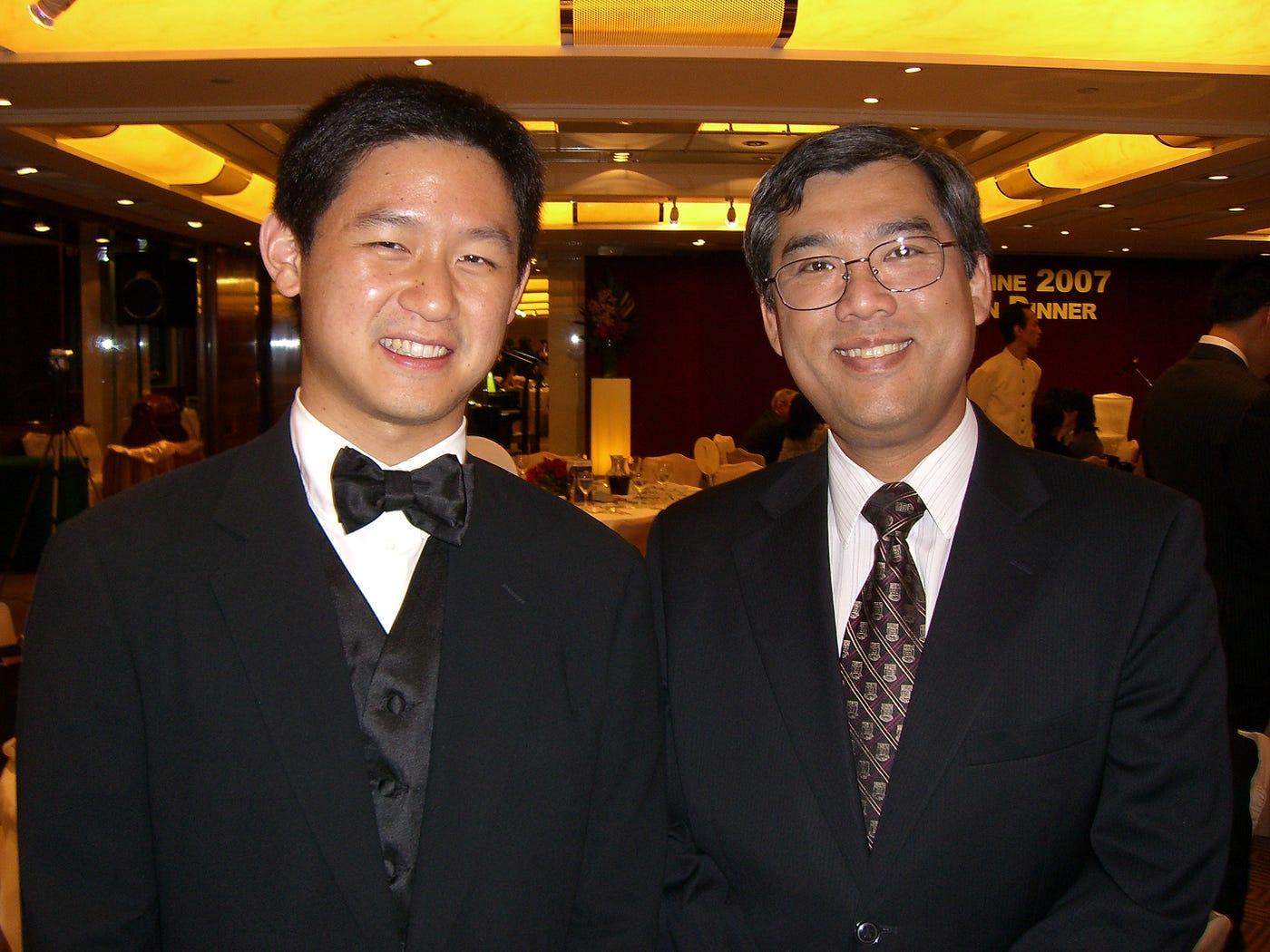 Dr Cheung’s interest in spine surgery and research was sparked by his time working with Professor Luk
Dr Cheung’s interest in spine surgery and research was sparked by his time working with Professor LukQ1. How did your mentor-mentee relationship come about?
Dr Cheung: Initially, I was interested in pursuing a career in general surgery but the three-month internship in Orthopaedics and Traumatology (O&T) was life-changing. I fell in love with the specialty and was determined to become an orthopaedic surgeon. The various surgical procedures such as tumours, trauma, deformities, joint replacements and spine surgery, not only changed my perception of the specialty but also became the reason why I chose O&T. During my six months of specialist training in spine surgery, Professor Luk piqued my interest in spine surgery and research.
Professor Luk: Back then, the former head of surgery, Professor John Wong, highly praised Jason for his performance during his surgery internship and knowing he wanted to join O&T, recommended him to me. When I look for a good trainee who aspires to an academic career, I would observe their character and see whether they are suitable for doing research. They not only have to be diligent but also have a hunger for new knowledge. Those in academia should have self-discipline and be self-motivated. There’s a saying that distance tests a horse’s strength, while time reveals a person’s character. And from that enthusiastic intern, I have gradually come to understand Jason’s potential.
 Professor Luk says working in an operating theatre can train a person to solve problems
Professor Luk says working in an operating theatre can train a person to solve problemsQ2. What did you learn from your mentor?
Dr Cheung: Prof Luk is a teacher of principle and that had a great impact on me. There will always be the temptation to take the easy way out, but I’ve learned from Professor Luk that sometimes the hardest route is the right one. This can also be felt in the operating room. When everyone is waiting for you to make a decision, you inevitably feel the pressure. However, Professor Luk always takes the next step after careful analysis. When I took up the post as Head of Department last December, I made a promise to myself to continue working around this principle.
Professor Luk: You speak too highly of me, I just want to teach by example. My opinion could be out of date. I try to tell students about the mistakes I made in the past in the hope they won’t repeat them. You probably just didn’t know how nervous I was in the operating theatre when I looked calm on the outside. The operating room can train you to control the situation and solve problems. As long as you stick to the principles when making decisions, you won’t be too far off.
 Dr Cheung (left) and Professor Luk celebrate the Department’s 60th anniversary alongside two former Department heads —Professor John Leong and Professor Kenneth Cheung
Dr Cheung (left) and Professor Luk celebrate the Department’s 60th anniversary alongside two former Department heads —Professor John Leong and Professor Kenneth CheungQ3. How important is mentorship when nurturing doctors?
Professor Luk: As seniors, in addition to discovering the potential of our juniors and arranging suitable posts for them, we need to bring them to a bigger stage. Many experts at HKUMed have established a global reputation. One of our responsibilities is to bring Hong Kong’s young scholars into the international arena.
Dr Cheung: Regardless of how teaching methodologies and curricula change over time, the tradition of mentorship has become an indispensable element in medical education. I am fortunate to have Professor Luk as my life mentor. I can talk to him about anything and he asks questions that would have never even crossed my mind.
 Dr Cheung is drawing on Professor Luk’s experience as he seeks out talented individuals for the Department
Dr Cheung is drawing on Professor Luk’s experience as he seeks out talented individuals for the DepartmentQ4: The theme of HKUMed’s 135th anniversary is “Building Dreams, Realising Possibilities”. What are your thoughts on the development of the Faculty?
Professor Luk: With rapid developments in medicine, patients’ expectations of us doctors are growing. Facilities are just as important as people, so I hope we can create an environment that helps everyone achieve their potential.
Dr Cheung: The Faculty has built a lot of facilities and research spaces to meet the growing demand for teaching and research. I am responsible for discovering talented individuals both inside the Department and externally, just as Professor Luk cultivated people like me in the past. I am learning from him how to gain insight into a person’s talents and how best to deploy them to build a strong foundation for the Department.
Q5. How has your relationship evolved?
Dr Cheung: Prof Luk was often the leader and I would learn by following. As I accumulated more clinical and research experience, I feel like we can discuss clinical cases and research ideas on the same level. I think this has helped us enjoy our discussions together even further. This is the definition of passing on expertise through mentorship.
Professor Luk: I am proud that Jason has now developed his own direction of research and taking up the challenge of leading the department amidst the reform of the Faculty structure. Jason is not just receiving the baton but also moving forward to surpass me. This is progress.
This interview has been edited for length and clarity.

